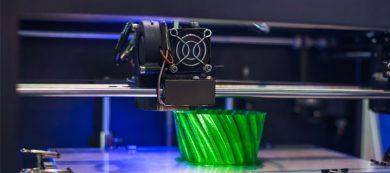HOW TECHNOLOGY IS CHANGING THE FUTURE OF LOGISTICS
The world of shipping and logistics industry is currently changing dramatically and companies and shippers are constantly coming up with new ways to address change. Modern advances in technology play a significant role in this change. While some of the effects can disrupt the logistics industry, over the long run they can help leverage the use of automation, workflow optimization, and artificial intelligence.
Current business models have and continue to adapt to such changes, and a number of technologies have played valuable roles in optimizing the logistics industry. Technology has helped optimize supply chain management processes, safety features during transportation, and delivery data sharing to multiple sources in real time.
Contents
Shipment Tracking Systems
Tracking systems have been improved by advances in technology. Any cargo in transit can be tracked in real time, providing mile by mile delivery details. This transit visibility has not only helped shippers and logistics companies do a better job managing routes, shipments, and timelines, but has also allowed customers to access this information, creating an improved user experience.
Internet of Things (IOT)
Connectivity has also played an incremental role in the improvements in the logistics industry. Many more devices, vehicles, and agents are now connected to Wi-Fi, making information more readily available quicker. This allows automatic processes to take place and devices can share data in real time.
Artificial intelligence (AI) is also used to read, understand, and provide data, allowing for faster and more efficient optimization. By having AI run daily tasks such as scanning or entering data, these processes can occur much more quickly, allowing only minimal delays for shipment data.
Radio Frequency Identification (RFID)
Radio frequency identification chips have been in use for many years and have revolutionized the logistics industry, as well as any industry that depends on inventory coming in and out regularly. These chips are placed on products, trucks, cargo ships, and containers, and emit a unique radio frequency.
When the product enters or leaves a warehouse, intermodal point, or port, a scanner picks up each of the individual RFID codes, and notifies the company of the product’s check in or check out. RFID tags act as a wireless barcode, and this system can scan many items in bulk, increasing efficiency of the whole process. Entire shipments and containers can be accounted for in a matter of seconds, providing shipping information in real time to shippers, companies, and recipients all over the globe.
Autonomous Trucks and Drones
Driverless vehicles and drones deliveries are just around the corner, with big name manufacturers and shipping companies beginning to step into such territory. Unmanned aerial vehicle deliveries have already begun, with companies such as Amazon paving the way for this industry, although there has not been much current regulation for this.
However, with the worldwide pandemic of COVID-19 in play, companies such as Manna Aero are pushing the envelope to provide drone delivery for medical supplies.
Trucks have been becoming ‘smarter’ over the last several years, incorporating advanced electronic and communication features such as cameras, tracking systems, crash prevention, and self-driving capabilities. While we have not reached that level of autonomy yet, mainly due to the lack of infrastructure currently available, companies like Uber and Tesla have already presented viable options for self-driving trucks.

3D Printing
3D printing may begin to revolution the shipping and logistics industry in a very unique way. For many minor products, parts, pieces, and other goods transported often, 3D printing may become a far more efficient and cost effective option for production. While this technology has been used for many years by large scale manufactures, it is becoming more common for smaller companies and brands.
Final Thoughts
Logistics companies continue to adapt to changes in modern technology and find ways to integrate new tools into their workflow. From real time tracking systems to driverless trucks, technology is pushing this industry forward fast.
As this new technological shift occurs, the industry will have to be adaptable, forward thinking, and innovative. At FYM Express, we remain at the forefront of our industry, incorporating new technology into the way we do things. Find out more by calling FYM Express (84) 028 66 787 222 today.


